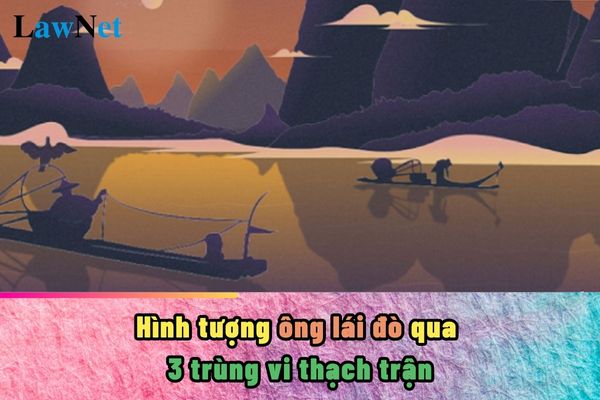Vietnam: What are the guidelines for analysis of the image of the boatman through the 3 stone battlefronts? What are the document forms and genres under the 6th-grade Literature program?
What are the guidelines for analysis of the image of the boatman through the 3 stone battlefronts in Vietnam?
The work "The boatman of the Da River/người lái đò sông Đà" is a unique piece, made even more special by the image of the boatman.
Therefore, students in Vietnam can refer to the best guidelines for analysis of the image of the boatman through the 3 stone battlefronts below:
|
Analysis of the Boatman’s Image through 3 Stone Battlefronts The Boatman - A Brave Warrior on the Da River |
*Note: The above guidelines for analysis of the image of the boatman through the 3 stone battlefronts are for reference only./.

What are the guidelines for analysis of the image of the boatman through the 3 stone battlefronts in Vietnam? (Image from the Internet)
What are the document forms and genres under the 6th-grade Literature program in Vietnam?
Under sub-item 2, Section 5 of the General Education Program for Literature attached to Circular 32/2018/TT-BGDDT, 6th-grade students in Vietnam are exposed to the following Vietnamese language knowledge after studying Literature:
- Simple words and compound words, compound words and reduplicative words
- Polysemous words and homonyms
- The meaning of some common idiomatic expressions
- The meaning of some common Sino-Vietnamese elements (example: bat, phi) and the meaning of words that contain those elements (example: bat cong, bat dong, phi nghia, phi li)
- The main components of sentences: expanding the main components of sentences with phrases
- Adverbial elements: characteristics, function as sentence connectors
- The use of the semicolon (to mark boundaries between complex lists); quotation marks (to indicate the unconventional use of a word or phrase)
- Metaphor and metonymy as stylistic devices: characteristics and effects
- Paragraphs and texts: characteristics and functions
- Choosing words and some sentence structures appropriate for conveying the meaning of a text
- Document Form and Genre
+ Narrative text: an essay recounting a personal experience, an essay retelling a traditional folktale
+ Descriptive text: an essay describing a living scene
+ Expressive text: six-eight verse poems; a paragraph expressing feelings when reading a six-eight verse poem
+ Argumentative text: opinions, reasoning, evidence; an essay presenting opinions on a phenomenon in study, life
+ Informational text: headline, subheading, section, boldface, numerical order and bullet points; expository text recounting an event; minutes of a record of an incident or a meeting, discussion
- Language development: the phenomenon of borrowing words, borrowed words, using borrowed words
- Non-verbal communication tools: images, data.
What are the regulations on assessing the learning results of 6th-grade students in Vietnam?
Under Clause 2, Article 9 of Circular 22/2021/TT-BGDDT, the learning results of 6th-grade students be assessed by one of 4 categories as follows:
1) Excellent:
- All subjects assessed with feedback are placed in Qualified category.
- All subjects assessed by both feedback and scores have minimum scores of 6.5 for DTBmhk and DTBmcn with 6 subjects among which have minimum scores of 8.0 for DTBmhk and DTBmcn.
2) Good:
- All subjects assessed with feedback are placed in Qualified category.
- All subjects assessed by both feedback and scores have minimum scores of 5.0 for DTBmhk and DTBmcn with 6 subjects among which have minimum scores of 6.5 for DTBmhk and DTBmcn.
3) Qualified:
- Have no more than 1 subject assessed via feedback placed in Unqualified category.
- At least 6 subjects assessed by both feedback and scores have minimum scores of 5.0 for DTBmhk and DTBmcn with 0 subjects have scores lower than 3.4 for DTBmhk and DTBmcn.
4) Unqualified: Remaining cases.

